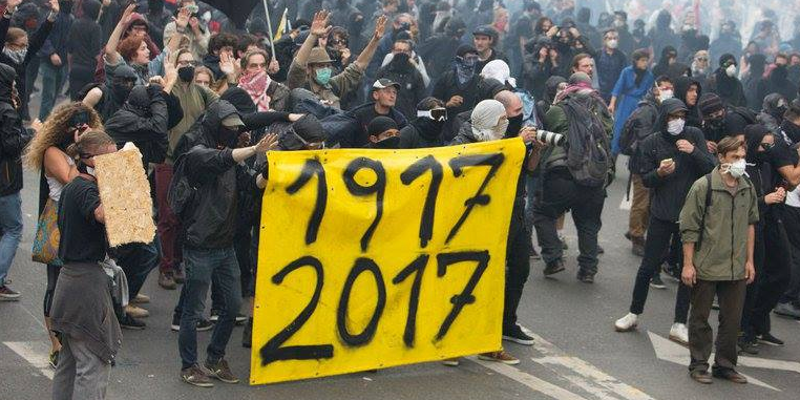Internetional Institute for Social History in Amsterdam
Mon, Nov 13, 2017, 9:00 AM –
Tue, Nov 14, 2017, 6:00 PM
Together with Athina Karatzogianni and Andrey Rezaev, Stefania Milan organises ‘Connecting to the Masses – 100 Years from the Russion Revolution: From Agitprop to the Attention Economy’. The two-day event will be helt November 13th to the 14th at the International Institute for Social History and the University of Amsterdam. Lonneke van der Velden will be present ‘Daguerrotypes of protest: the Paris Commune’s media activism and present-day ‘social media revolutions’ on Day two. For more information about the schedule and tickets, check the eventbrite page.
About the two-day event
The relationship between governments and the people they govern has been always hostage to rhetoric, propaganda, and strategic public relations, as well as aggressive marketing and the influence of contemporary media industries, altering the dynamics of healthy political communications. Often, this relationship has thrived on charismatic leaders, the “avant-garde”, who could feel the pulse of their population’s grievances, demands and hopes for the future. Whether the Russian revolution of 1917 is interpreted as a product of class struggle, as an event governed by historic laws predetermined by the alienation of the masses by monopoly industrial capitalism, or as a violent coup by a proto-totalitarian Bolshevik party, the Russian revolutionaries understood and connected to the masses in a way that the autocracy, bourgeois elites and reformists alike failed to do.
In the midst of rage, desperation and harsh everyday life conditions, due to the pressure and failures of WW1 against Germany, food shortages, growing poverty, inequality and alienation, the Bolsheviks felt the undercurrents in the seas of history and spoke to the people, exactly when the relationship between the Tsar and the population, and between the Provisional government and the Soviets were at a crucial tipping point. The Bolsheviks grasped the opportunity to change the world for themselves in the here and now, rather than waiting to reform in the future for their children. They did so violently and unapologetically with the effects of their move running through the Cold War and the confrontation with the West, all the way to the complex and intense relations between Russia and the United States, in terms of failed engagements of the past 25 years since the fall of the USSR, the first socialist state in the world.
About the organisers
The conference is organised through a collaboration between Athina Karatzogianni from the School of Media, Communication and Sociology of the University of Leicester; Stefania Milan from the DATACTIVE research group at the Media Studies department of the University of Amsterdam; Andrey Rezaev from the Department of Sociology at St. Petersburg State University; the International Institute of Social History, Amsterdam; and the State Museum of Contemporary Art, Thessaloniki.




